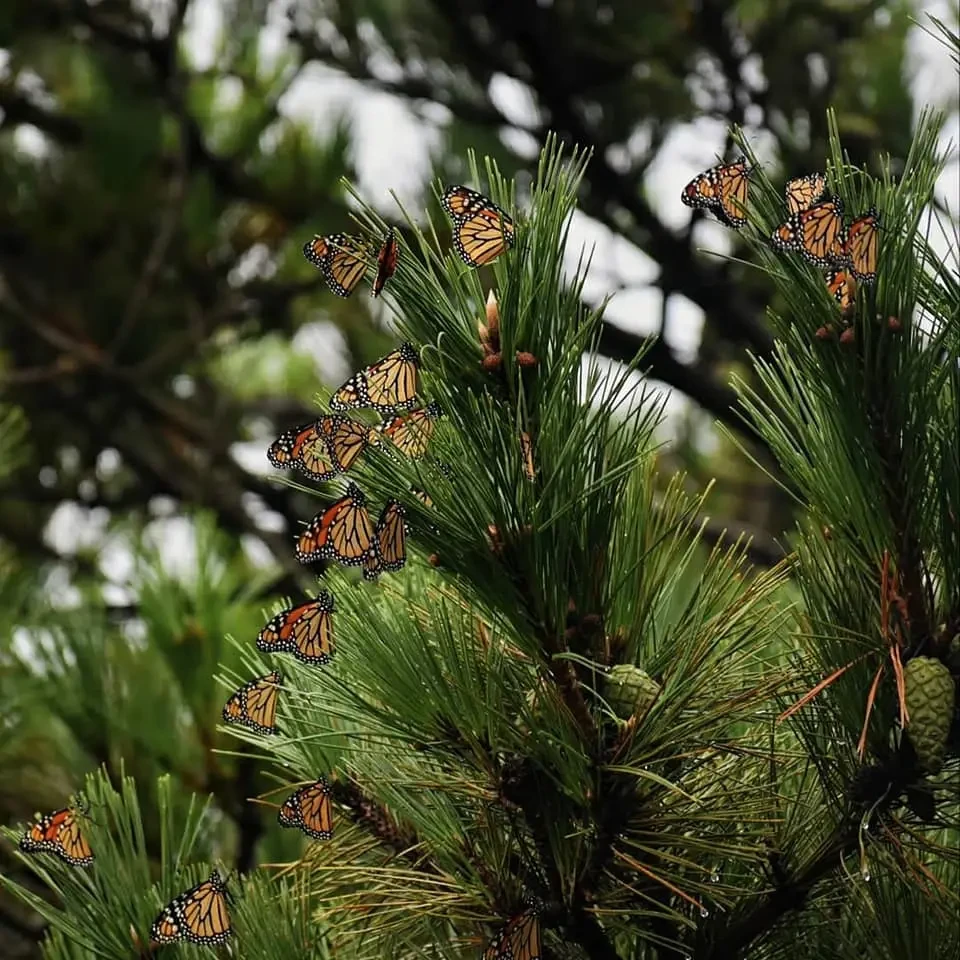The Latest in Positive Science News
Caitlin shares a bit of optimism with the latest positive science news, from agriculture, butterfly migration to responsible water capture.

With the state of the world today, it can feel very disheartening to open the news. Scientists often have no choice but to be the bringers of bad news: climate change, food insecurity, and rapidly evolving diseases to name a few. In actuality, scientists are working very hard to solve global problems and many are innovating creative solutions. Here are just a few recent breakthroughs that will make the world a better place.
Electro-agriculture: The Sustainable Solution to Food Insecurity
Agricultural land already occupies almost 50% of the world’s habitable land and with the growing issue of global food insecurity that number is only set to rise. This is a big issue for the climate and biodiversity as agricultural land is normally not very diverse and food production is responsible for a large part of the greenhouse gas emissions caused by humans.
Enter electro-agriculture, a revolutionary farming technique that bypasses the need for photosynthesis using CO₂ electrolysis and genetic engineering. This would negate the need for grow lights or cooling systems when farming indoors, saving massive amounts of energy. Additionally, electro-agriculture can reduce agricultural land usage — as without the need for light, food could easily be grown in stacks. Implementing this in the US alone could free up 1 billion acres of land. This land would then be free for habitat restoration and carbon capture via tree planting.
Assisting Monarch Migration: Planting Trees at Higher Elevations Gives the Iconic Butterfly Species a Helping Hand
Climate change is causing the once suitable habitats of many species to no longer be sustainable as temperatures increase and droughts become more frequent. One such species is Abies religiosa, or the Oyamel fir, a coniferous tree that grows at high elevations. Found only in Mexico, A. religiosa is the exclusive host to the endangered Monarch Butterfly (Danaus plexippus) every winter. These trees are essential to Monarch Butterfly survival over the winter but are sensitive to the projected effects of climate change.
Conservationists have theorised that Monarch migration could be assisted by planting A. religiosa at higher altitudes, which are becoming the butterflies’ preferred climatic conditions as temperatures rise and rainfall decreases. Researchers have recently found they could establish A. religiosa populations at higher elevations than their traditional ranges. The tree species being given this new lease of life is extremely promising for the conservation of the Monarch Butterflies that rely on them.
Atmospheric Water Capture: Scientists Develop Technology to Harvest Water from the Air
Water scarcity is becoming an increasingly global issue as climate change creates more and more arid areas. It’s been predicted that even with only 1.5°C of global warming, about 2 million km² of land will become arid. Lack of access to properly sanitised water can be the cause of many water-borne diseases, so there is great demand for a solution.
Atmospheric water capture — the process of changing the water vapour in the air into liquid — may be the answer. Previous attempts at this have yielded low water levels and are not very effective in low-humidity conditions. Recently, researchers at the University of Pittsburgh have taken inspiration from the skin of tree frogs to develop a device that can capture water even in very arid conditions. What’s more, it can produce a significantly higher amount of water at the same humidity level compared to previous devices. They project that in conditions as arid as Las Vegas their 1 metre squared device has the potential to be a source of drinking water for 2-3 people. Their research could be the first step in providing billions of people safe, drinkable water.
Hopefully you can leave this article feeling a bit more hopeful for the state of the world compared to when you found it. Take these few examples of people innovating as evidence of the push towards the positive in science.
Words by Caitlin Hughes
References:
- Crandall, B.S., Harland-Dunaway, M., Jinkerson, R.E. and Jiao, F. 2024. Electro-agriculture: Revolutionizing farming for a sustainable future. Joule.
- Gao, Y., Eason, A., Ricoy, S., Cobb, A., Phung, R., Kashani, A., Mata, M.R., Sahm, A., Ortiz, N., Rao, S. and Cho, H.J. 2024. High-yield atmospheric water capture via bioinspired material segregation. Proceedings of the National Academy of Sciences of the United States of America. 121(44).
- Sáenz-Romero, C., Osuna-Vallejo, V., Herrejón-Calderón, P., Pérez-Cruz, L.A., Joaquín-Juan, M.G., Cruzado-Vargas, A.L., O’Neill, G.A., Zacarías-Correa, A.G., Manzanilla-Quijada, G.E., Lindig-Cisneros, R., Blanco-García, A., Endara-Agramont, Á.R. and Lopez-Toledo, L. 2024. Establishing monarch butterfly overwintering sites for future climates: Abies religiosa upper altitudinal limit expansion by assisted migration. Frontiers in Forests and Global Change. 7.Spinoni, J., Barbosa, P., Cherlet, M., Forzieri, G., McCormick, N., Naumann, G., Vogt, J.V. and Dosio, A. 2021. How will the progressive global increase of arid areas affect population and land-use in the 21st century? Global and planetary change. 205(103597), p.103597.
